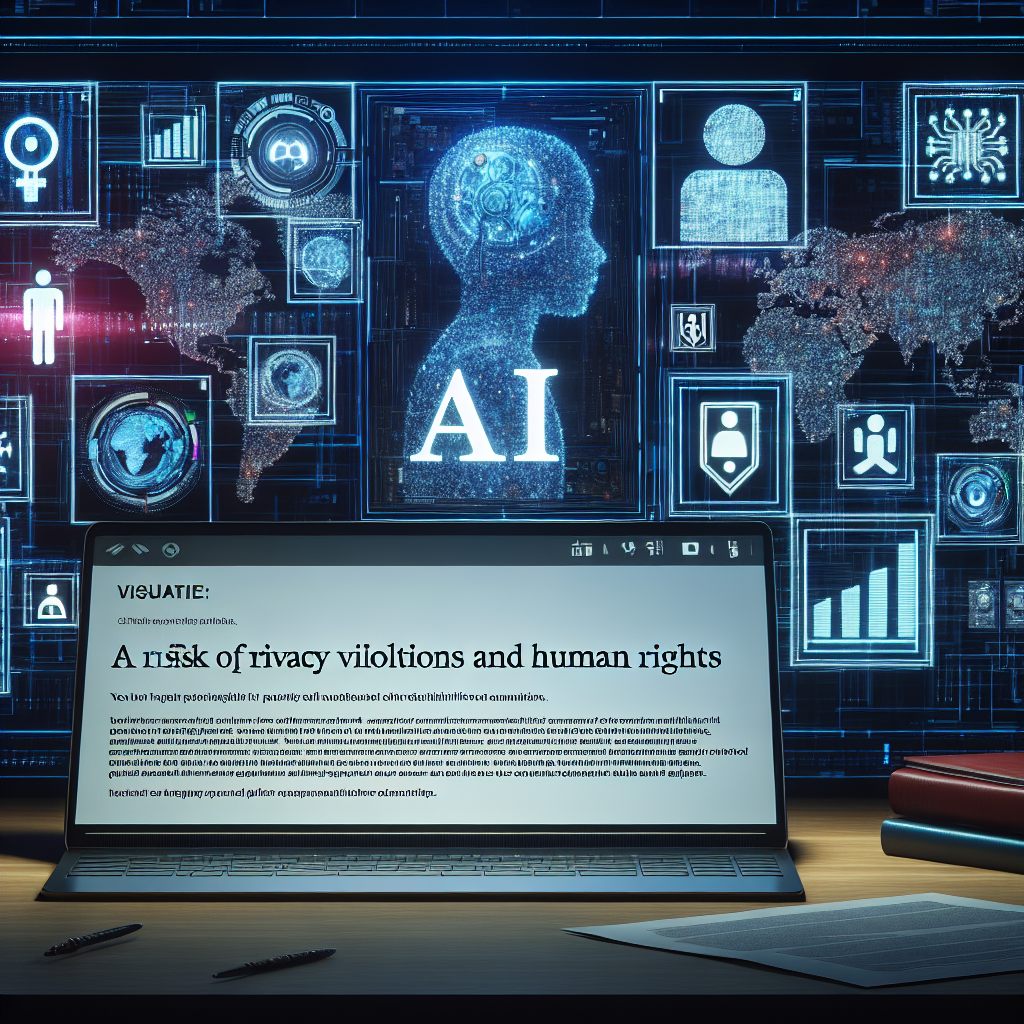Artificial Intelligence (AI) has the potential to revolutionize various aspects of our lives, from healthcare to transportation to entertainment. However, as AI becomes more integrated into our society, there are growing concerns about the risks it poses to human rights, particularly in terms of privacy violations and discrimination.
Privacy Violations:
One of the major risks associated with AI is the threat to privacy. AI systems are increasingly being used to collect and analyze vast amounts of personal data, from social media posts to healthcare records to online shopping habits. This data can be used to create detailed profiles of individuals, which can then be used to target them with personalized advertisements or even make decisions about their eligibility for certain services or opportunities.
One of the most concerning aspects of AI-driven data collection is the lack of transparency around how this data is being used. Many companies and organizations are not upfront about the ways in which they are collecting and analyzing personal data, leaving individuals in the dark about the potential risks to their privacy. This lack of transparency can lead to a erosion of trust between individuals and the companies and organizations that are collecting their data.
Furthermore, AI systems are not infallible, and there is always the risk of data breaches or leaks that could expose individuals’ personal information to malicious actors. This can have serious consequences for individuals, from identity theft to blackmail to stalking. In some cases, the data that is collected and analyzed by AI systems can be used to make decisions about individuals’ lives, such as whether they are eligible for a loan or a job. If this data is inaccurate or biased, it can have serious consequences for individuals’ opportunities and well-being.
Discrimination:
Another major risk associated with AI is the potential for discrimination. AI systems are trained on vast amounts of data, which can include biases and prejudices that are present in society. This can lead to AI systems making decisions that are discriminatory or harmful towards certain groups of people.
For example, AI systems used in hiring processes have been found to discriminate against certain groups, such as women and minorities. This can happen when the data used to train the AI system is biased towards certain groups, leading the system to favor candidates who fit a certain profile. This can perpetuate existing inequalities in society and make it even harder for marginalized groups to access opportunities.
Similarly, AI systems used in law enforcement have been found to disproportionately target minority groups. This can happen when the data used to train the AI system is biased towards certain groups, leading the system to target those groups more frequently. This can lead to increased surveillance and harassment of certain communities, further exacerbating existing inequalities.
FAQs:
Q: Can AI systems be designed to protect privacy and prevent discrimination?
A: Yes, AI systems can be designed in a way that protects privacy and prevents discrimination. This can be done by ensuring that the data used to train the AI system is diverse and representative of the population as a whole. Additionally, companies and organizations should be transparent about the ways in which they are collecting and using personal data, and individuals should have the right to opt out of data collection if they so choose.
Q: What can individuals do to protect their privacy in the age of AI?
A: There are several steps that individuals can take to protect their privacy in the age of AI. This includes being mindful of the information that they share online, using strong passwords and encryption methods, and being cautious about the apps and services that they use. Additionally, individuals can advocate for stronger data privacy laws and regulations to protect their rights.
Q: How can companies and organizations prevent discrimination in their AI systems?
A: Companies and organizations can prevent discrimination in their AI systems by being mindful of the biases and prejudices that may be present in the data used to train the system. This includes ensuring that the data is diverse and representative of the population as a whole, and implementing safeguards to prevent discrimination. Companies and organizations should also be transparent about the ways in which their AI systems are making decisions, and individuals should have the right to appeal decisions that they believe are discriminatory.
In conclusion, while AI has the potential to bring about many benefits to society, it also poses significant risks to human rights, particularly in terms of privacy violations and discrimination. It is essential that companies, organizations, and policymakers take steps to protect individuals’ rights and ensure that AI is used in a fair and ethical manner. By being mindful of these risks and working together to address them, we can harness the power of AI for the greater good of society.

